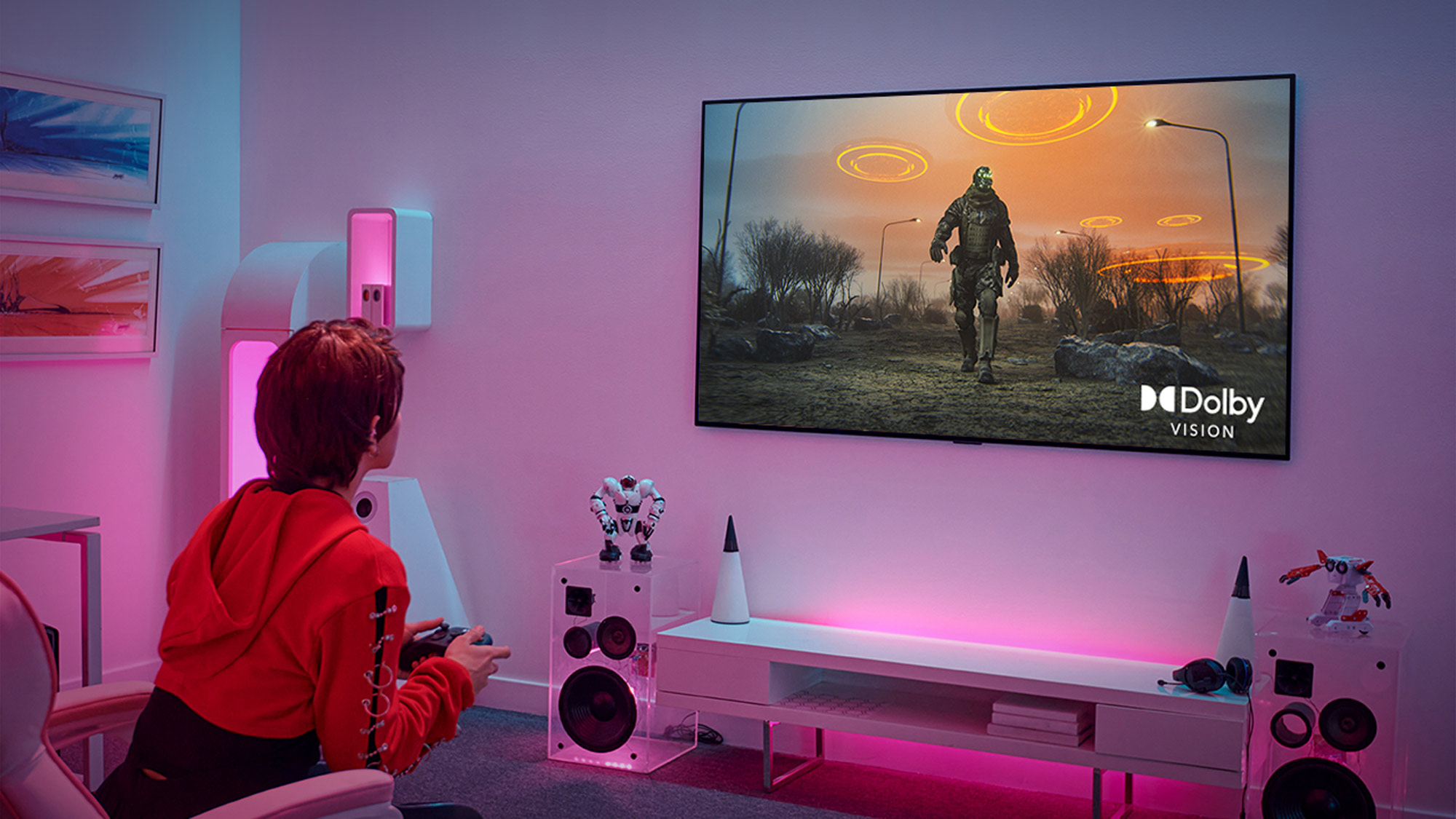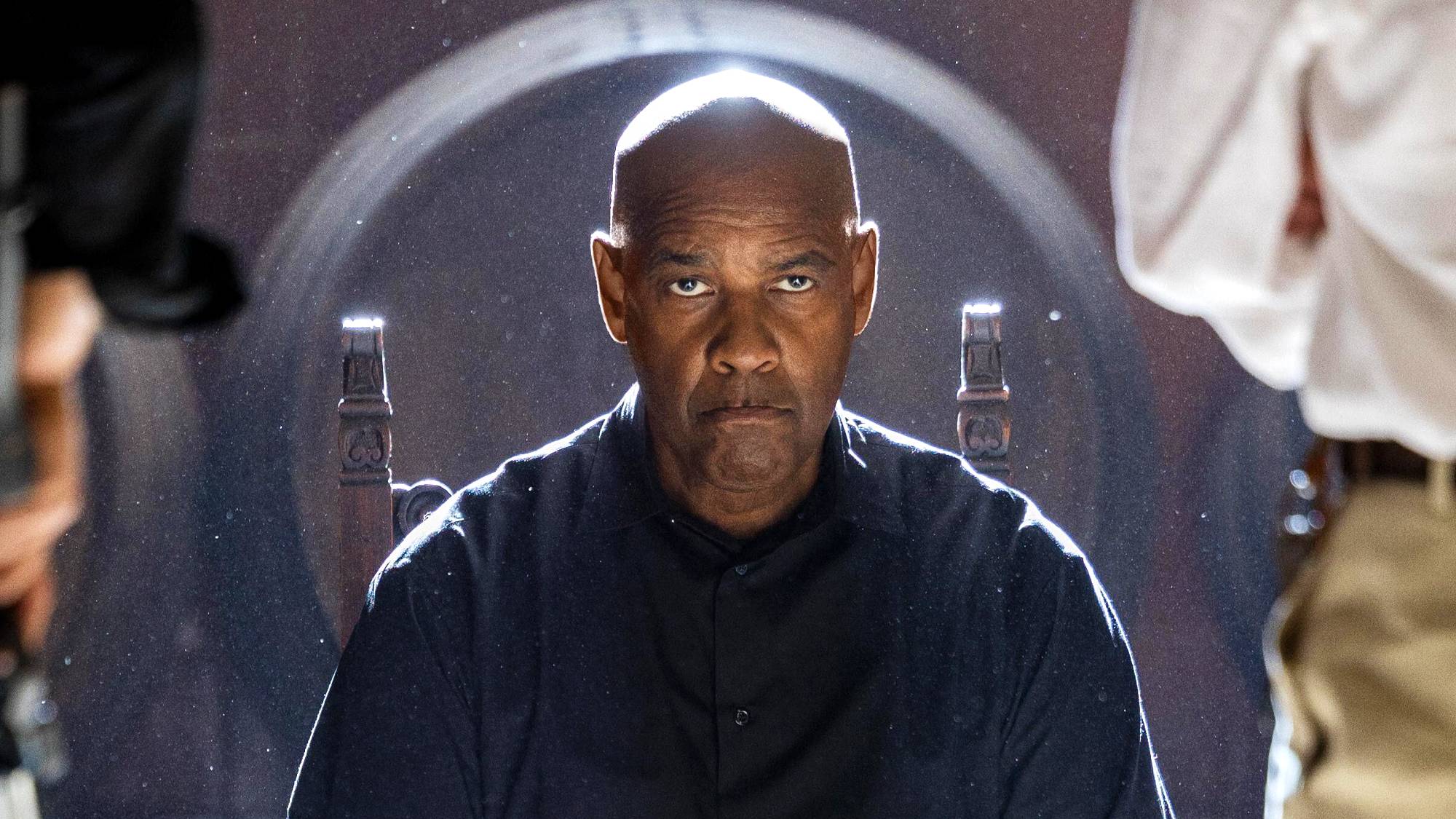Dolby Vision IQ vs Dolby Vision: What's the difference?
Dolby Vision IQ debunked: Everything you need to know about the upgraded HDR standard

Here at Tom’s Guide our expert editors are committed to bringing you the best news, reviews and guides to help you stay informed and ahead of the curve!
You are now subscribed
Your newsletter sign-up was successful
Want to add more newsletters?

Daily (Mon-Sun)
Tom's Guide Daily
Sign up to get the latest updates on all of your favorite content! From cutting-edge tech news and the hottest streaming buzz to unbeatable deals on the best products and in-depth reviews, we’ve got you covered.

Weekly on Thursday
Tom's AI Guide
Be AI savvy with your weekly newsletter summing up all the biggest AI news you need to know. Plus, analysis from our AI editor and tips on how to use the latest AI tools!

Weekly on Friday
Tom's iGuide
Unlock the vast world of Apple news straight to your inbox. With coverage on everything from exciting product launches to essential software updates, this is your go-to source for the latest updates on all the best Apple content.

Weekly on Monday
Tom's Streaming Guide
Our weekly newsletter is expertly crafted to immerse you in the world of streaming. Stay updated on the latest releases and our top recommendations across your favorite streaming platforms.
Join the club
Get full access to premium articles, exclusive features and a growing list of member rewards.
When it comes to making movies look exactly how their director intended, Dolby Vision is often considered to be the best HDR format — and if you have a compatible TV, chances are you're watching content in Dolby Vision without even necessarily realizing it.
But there’s a slightly newer and even more advanced version of Dolby Vision, called Dolby Vision IQ, that launched in 2020 and has become more widespread in the years since. It aims to solve a few of the major issues that you might have experienced when watching your favorite movies or TV shows.
But how exactly does it differ from regular Dolby Vision, and do you need one of the best TVs to experience it for yourself?
What is Dolby Vision IQ and how does it work?
Dolby describes Dolby Vision IQ as the next step of HDR. Put simply, it's a new-and-improved version of Dolby Vision, which is an HDR format that many TVs support...well, not Samsung ones. As you might expect, it's Dolby's proprietary HDR format and sits alongside other formats like HDR10 and HDR10+.
The biggest improvement to Dolby Vision IQ is that it's designed to adjust the picture and optimize Dolby Vision content depending on the brightness level of your physical room. In particular, it's supposed to address those dark TV shows where you can't see what's happening on the screen and can't see any details. That has been a problem in everything from Ozark to some episodes of Game of Thrones.

So how does it work? Regular Dolby Vision does not leverage your room's brightness to optimize content, and that’s the main difference between the two formats. That, however, doesn't mean that your TV isn't using its own tricks to sense brightness levels and adjust the image quality accordingly.
There is a difference between how Dolby Vision IQ works and how your TV’s regular ol’ brightness sensing works though. When your TV adjusts screen brightness using its light sensor outside of Dolby Vision IQ, it's really just increasing or decreasing the overall brightness for the purpose of making it easier to see the content as a whole while saving energy. When your TV does this, it makes a global adjustment that affects all of the content on the screen, regardless of the HDR format that the content you're watching might be in.
Get instant access to breaking news, the hottest reviews, great deals and helpful tips.
Instead of simply turning down the overall brightness in a dark room, Dolby Vision IQ uses ambient brightness levels in tandem with the dynamic metadata in Dolby Vision content to more finely tune how content is presented.
Dolby Vision IQ works a little differently. Instead of simply turning down the overall brightness in a dark room, it uses ambient brightness levels in tandem with the dynamic metadata in Dolby Vision content to more finely tune how content is presented. More specifically, in dark rooms, the image isn't really tweaked or changed at all, leaving the dynamic range completely intact, including those brighter highlights. It's only really in brighter settings where content is brightened a little bit while still preserving much of the dynamic range, making details in darker scenes more visible.
There is some additional metadata in Dolby Vision IQ content that identifies the kind of content that it is. According to Dolby, this so-called L11 metadata can be the default, movies, games, sports, or user-generated content. This metadata is not required for Dolby Vision IQ to work, but if included, it might allow your TV to adjust viewing modes according to the content that you're watching.
None of that happens with regular Dolby Vision content, which will still look excellent in a dark room, but may be hard to make out when there are dark scenes in a movie or TV show and you're in a brighter environment.
How to get Dolby Vision IQ on your TV
Unfortunately, getting Dolby Vision IQ for yourself isn't quite as easy as just having a TV that supports Dolby Vision and has a light sensor. As mentioned, much of the time, light sensors aren't used for HDR tone mapping at all, instead simply being used globally to adjust overall brightness.
The good news, however, is that content doesn't need to be specifically formatted for Dolby Vision IQ. All Dolby Vision content supports Dolby Vision IQ, with the only difference being that the content is adjusted dynamically using the brightness level in your viewing environment.
These days, there are plenty of TVs that support Dolby Vision IQ. Most recent Hisense and TCL TVs support the format, as do LG's and Sony’s top TVs. Samsung is perhaps the major exception, which is unsurprising given the fact that Samsung TVs don't support Dolby Vision in general.
That doesn't necessarily mean you should run out and buy a new TV just for Dolby Vision IQ support, especially if the room that you usually watch content in is darker or you haven't experienced issues around content being too dark.
That doesn't necessarily mean you should run out and buy a new TV just for Dolby Vision IQ support, especially if the room that you usually watch content in is darker or you haven't experienced issues around content being too dark.
Yes, it's a handy add-on, and if your TV supports Dolby Vision IQ already, it's definitely worth enabling. But if your TV simply supports regular old Dolby Vision, rest assured that you're still getting a great viewing experience — you might just need to turn up the brightness every now and then if you're watching particularly dark content, or let your TV handle brightness adjustments with the knowledge that the image quality might not be quite as precise as Dolby would have liked.
If you are looking to upgrade to a Dolby Vision IQ-equipped TV, consider the LG C5 OLED, our pick for the best OLED TV of 2025.

Follow Tom's Guide on Google News and add us as a preferred source to get our up-to-date news, analysis, and reviews in your feeds.
More from Tom's Guide

Christian de Looper is a freelance writer who has covered every facet of consumer tech, including mobile, audio, home theater, computing, gaming, and even car tech. At Tom’s Guide, Christian covers TV and home theater tech, and has reviewed dozens of TVs, soundbars, and A/V receivers, including those from the likes of Samsung, Hisense, TCL, and Vizio.
You must confirm your public display name before commenting
Please logout and then login again, you will then be prompted to enter your display name.
 Club Benefits
Club Benefits










